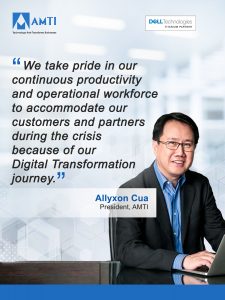POGOs required to obtain tax clearances before resuming operationa
PHILIPPINE Offshore Gaming Operators (POGOs) and service providers will be required to secure tax clearances from the Bureau of Internal Revenue (BIR) and settle all liabilities before will be permitted to resume operations, The Department of Finance said.
In a Viber message, Finance Secretary Carlos G. Dominguez III said POGO service providers will have to settle their 2019 income tax liabilities while registered POGOs will have to pay their outstanding franchise taxes in 2019, before they can start operating again.
POGOs and the service providers will also have to remit to the BIR all of their current withholding tax liabilities for the year, and submit an undertaking that they will pay other taxes due.
“Once these are complied with the BIR will issue a tax clearance to enable them to operate,” Mr. Dominguez told reporters.
The government’s anti-coronavirus task force allowed POGOs and their service providers to reopen with up to 30% of their workforce after they were classified as part of the business process outsourcing (BPO) sector.
Mr. Dominguez has said that the service providers are not exempt from tax since their classification as part of the BPO sector will not grant them these tax privileges.
In a separate statement, ASPAP or the Accredited Service Providers of Philippine Amusement and Gaming Corp. (PAGCOR) said it will observe all health and safety protocols set by regulators once it resumes operations.
“We wish to reassure our legislators and the public that resumption of POGO operations would not undermine the ECQ or pose unnecessary health risk to the community,” ASPAP Spokesperson Margarita Gutierrez was quoted as saying.
Senator Ana Theresia N. Hontiveros-Baraquel earlier filed a resolution seeking to prevent POGO service providers from resuming operations once the enhanced community quarantine (ECQ) is lifted, citing their unpaid taxes.
Meanwhile, 31 legislatorsn have filed a bill proposing to outlaw offshore gaming operations, including a ban on service providers, POGO hubs and gaming laboratories.
The proposed Anti-POGO Act also seeks to revoke the licenses of all foreign-based operators, local gaming agents and service providers.
Among other requirements, POGO employees, whether Filipinos or foreign nationals, should first be tested for coronavirus disease 2019 (COVID-19) and must obtain a negative test result from a testing facility duly registered with the Food and Drugs Administration, before they can be allowed to work.
The BIR collected taxes totalling P6.42 billion in 2019 from POGOs and service providers, up 170% from a year earlier.
Of the total, P5.13 billion was generated by withholding taxes, P644.07 million by income taxes, P91.13 million by value-added taxes (VAT) and percentage taxes, P81.11 million by documentary stamp taxes and P469.13 million by other taxes.
The Bureau has estimated that around P27-billion worth of tax liabilities have not been collected from POGOs. — Beatrice M. Laforga


